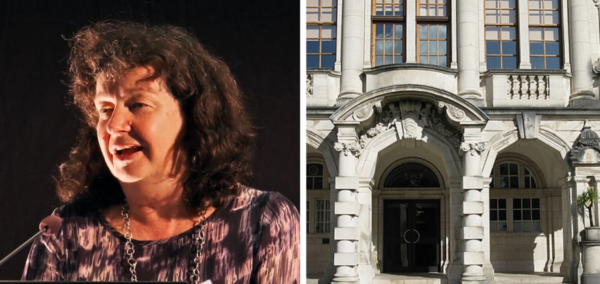
Natasha Abrahart’s parents appalled at ‘inadequate’ government response to student welfare petition
‘We owe it to Natasha, and to all the others who have died far too young, to make sure their deaths were not in vain’
Natasha Abrahart’s parents have said they are appalled at the government’s response to the #ForThe100 petition which calls for universities to be more liable for the well-being of their students.
The petition, which now has over 17,000 signatures, calls for legislative change regarding the responsibility of higher education institutions in cases such as these so the focus is not student blaming and scrutiny is instead directed towards university management.
After 10,000 signatures, the government is obliged to comment, and the Department for Education responded to the petition saying: “Higher Education providers do have a general duty of care to deliver educational and pastoral services to the standard of an ordinarily competent institution and, in carrying out these services, they are expected to act reasonably to protect the health, safety and welfare of their students.
“This can be summed up as providers owing a duty of care to not cause harm to their students through the university’s own actions.”

Via SWNS
The Abraharts believe that this statement is essentially meaningless in the absence of a commitment to establish a statutory duty of care. They are campaigning for universities to be held accountable for how they treat students after the tragic death of their daughter in 2018.
Natasha’s Father, Robert, said: “The government’s response appears to be an attempt at ducking the issue, and it does nothing to inform the debate about how the universities should keep students safe.”
He believes that: “If the government agrees with us that students deserve the protection of a legal duty of care then it should introduce a bill in Parliament rather than making bland statements.”
In April 2018 a 20-year-old physics student, Natasha Abrahart, died by suicide after the University of Bristol failed to make reasonable adjustments for Natasha’s social anxiety disorder.
Natasha’s condition was not taken into consideration by the university and Circuit Judge Alex Ralton found that: “The university’s regime of oral assessments placed Natasha at a substantial disadvantage when compared with students who did not share her disability and that this caused her to take her own life.”
Since May 2022, when a senior court judge ruled that the University of Bristol “Had caused the death of second-year physics student Natasha Abrahart when it breached its duties under the Equality Act”, Natasha’s parents have been pursuing legislative change so that other bereaved families can seek justice.
In October 2022, a parliamentary petition was started by “The Learn Network” and “#ForThe100” in support of the families of students who died by suicide at university.
Margaret Abrahart fears that the government response is intended to attempt to make the problem go away without making any effective change. However, it has incensed campaigners who “Will not go away until we have improved the protections for vulnerable university students. We owe it to Natasha, and to all the others who have died far too young, to make sure their deaths were not in vain.”
#ForThe100 estimates that around 100 university students are lost to suicide every year across the UK.

Via SWNS
Natasha’s parents were only able to get a sense of justice because “particular requirements of the Equality Act were met” but this was an exceptional case. Too often the parents of students who tragically take their lives are unable to seek justice because no statutory duty of care exists in Higher Education.
One parent whose son died by suicide writes: “Duty of care is owed to students, and the Government should legislate for this. HE providers should know what their duty is. Students must know what they can expect. Parents expect their children to be safe at university.”
#ForThe100, in reply to the Government statement, says that “Making bland statements about unwritten law helps nobody”. It only serves to perpetuate the myth. Student rights should be determined by Parliament, not left hanging on a ‘wing and a prayer’.”
#ForThe100 now wants to put more pressure on parliament by gathering 100,000 signatures so the issue could be debated in the house of commons. The organisation believes that: “This is not just about suicide prevention; everybody will benefit from improved decision-making within the sector. Since providers are happy to take their (student) fees, they should also take on this duty of care.”
Gus Silverman, the human rights lawyer who represented Robert and Margaret Abrahart notes that “The Government now has an opportunity to clearly define in statute the legal duties owed by universities to students. Failing to seize this opportunity risks preventing access to justice through the courts.”
If you or someone you know has been affected by this story, please speak to someone or contact Samaritans on 116 123 at any time. You can contact Anxiety UK on 03444 775 774, Mind on 0300 123 3393, and Calm (Campaign against living miserably, for men aged 15 to 35) on 0800 58 58 58. You matter.
A list of wellbeing services available to Bristol students can be found here.
The petition can be found here
The LEARN Network’s website here
For further information about the campaign, please visit here
Related articles recommended by this writer:
- Natasha Abrahart’s parents launch legal case against Bristol Uni over daughter’s suicide
- Bristol UCU announce the dates of 18 days of strikes
- Discrimination by the University of Bristol led to the suicide of a vulnerable student
Featured image via SWNS



















